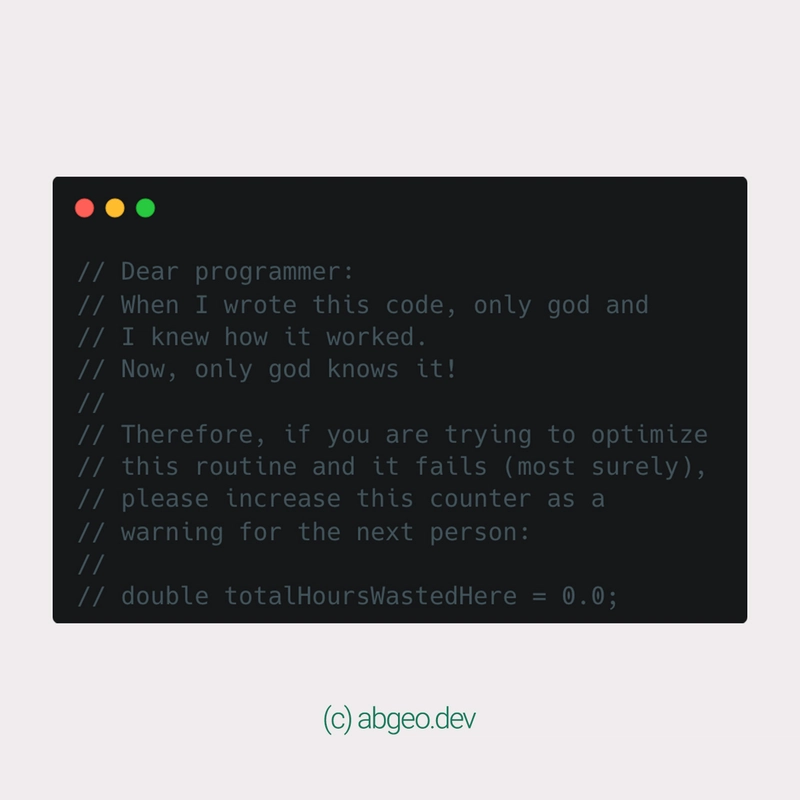Why Coding Bootcamps Are Failing Developers
A few years ago, coding bootcamps were seen as the golden ticket to breaking into tech. Three to six months of intense training, a portfolio of projects, and boom—you’d land a job as a software engineer. Except now, that promise is falling apart. It’s not that coding bootcamps don’t work at all—some people do land jobs. But if we’re being real, for a lot of graduates, bootcamps are setting them up for failure. And after watching layoffs hit developers left and right, seeing junior devs struggle to break into the industry, and witnessing the way hiring expectations have changed, I think it’s time we talk about what’s really happening. The Industry Has Changed, But Bootcamps Haven’t Let’s rewind to a few years ago. In the early 2020s, bootcamps thrived because the demand for developers was sky-high. Tech companies were hiring like crazy, venture capital was pouring in, and it felt like there was an infinite number of jobs. Then reality hit. Layoffs swept through the industry, hiring slowed down, and suddenly, being a "junior developer" wasn’t enough anymore. Companies wanted experience, deeper technical skills, and problem-solving ability—things that take time to develop. But bootcamps? They kept running the same three-month JavaScript courses, churning out grads like nothing had changed. The result? Too many junior devs, not enough jobs, and a job market that no longer favors bootcamp grads. The False Promise of “Job-Ready” in 3 Months Bootcamps love to advertise that you’ll be "job-ready" in three to six months. But let’s be honest—that’s not enough time to truly learn software engineering. Sure, you might learn the basics of JavaScript, React, or Python. You might build a to-do list app or a weather dashboard. But when you start applying for jobs, you’ll be up against candidates who: Have CS degrees with deep algorithmic knowledge. Have actual work experience from internships or freelancing. Have built real-world applications beyond simple CRUD apps. Most bootcamp grads don’t have the depth that companies are looking for. And in a market where companies can afford to be picky, that’s a big problem. The Oversaturation Problem For a while, bootcamps were producing just enough developers to meet demand. But in the last few years, with tech layoffs and hiring freezes, things changed. The industry is now flooded with: Unemployed junior developers from bootcamps. Experienced developers who were laid off and are now competing for the same jobs. An increasing number of self-taught devs with better portfolios than many bootcamp grads. The result? Bootcamp grads aren’t just competing with other juniors—they’re competing with mid-level engineers who are willing to take junior salaries. And in that fight, companies will almost always go with the more experienced candidate. The AI Factor: Coding Alone Isn’t Enough Anymore Here’s the uncomfortable truth: basic coding skills are becoming commoditized. AI tools like GitHub Copilot and ChatGPT can now generate solid code, fix bugs, and even write entire applications with minimal input. That means the real value of a developer isn’t just writing code—it’s understanding systems, making architectural decisions, debugging complex problems, and thinking critically. And guess what? Most bootcamps don’t teach that. They teach syntax, basic frameworks, and surface-level web development. But in now, that’s not enough. Companies need software engineers, not people who just follow tutorials. Bootcamps Still Work… But Only If You Go Beyond Them Look, I’m not saying coding bootcamps are 100% useless. Some people do land jobs after bootcamps. Some bootcamps do provide solid training. But here’s the reality: if you go through a bootcamp and only do what they teach, you will struggle to find a job. If you want to make a bootcamp work for you, you need to: Go deeper than the curriculum. Learn computer science fundamentals, system design, and problem-solving. Build real projects. Not just portfolio fluff—something that solves an actual problem. Contribute to open-source projects. Gain real-world experience and visibility. Network aggressively. Connections get people hired more than resumes do. Never stop learning. A bootcamp is just the start, not the finish line. So, Should You Do a Coding Bootcamp in 2025? That depends. If you expect a bootcamp to guarantee you a job, don’t do it. The market isn’t what it was in 2020, and you’ll likely end up disappointed. But if you treat a bootcamp as a stepping stone rather than the whole path, and if you’re willing to put in the work beyond the course, it can still be a viable way to break into tech. Just don’t fall for the marketing hype. Bootcamps won’t make you a great developer—you have to do that yourself. So? The tech industry isn’t the same as it was a few years ago. The job market is tougher, companies exp

A few years ago, coding bootcamps were seen as the golden ticket to breaking into tech. Three to six months of intense training, a portfolio of projects, and boom—you’d land a job as a software engineer.
Except now, that promise is falling apart.
It’s not that coding bootcamps don’t work at all—some people do land jobs. But if we’re being real, for a lot of graduates, bootcamps are setting them up for failure. And after watching layoffs hit developers left and right, seeing junior devs struggle to break into the industry, and witnessing the way hiring expectations have changed, I think it’s time we talk about what’s really happening.
The Industry Has Changed, But Bootcamps Haven’t
Let’s rewind to a few years ago. In the early 2020s, bootcamps thrived because the demand for developers was sky-high. Tech companies were hiring like crazy, venture capital was pouring in, and it felt like there was an infinite number of jobs.
Then reality hit.
Layoffs swept through the industry, hiring slowed down, and suddenly, being a "junior developer" wasn’t enough anymore. Companies wanted experience, deeper technical skills, and problem-solving ability—things that take time to develop. But bootcamps? They kept running the same three-month JavaScript courses, churning out grads like nothing had changed.
The result? Too many junior devs, not enough jobs, and a job market that no longer favors bootcamp grads.
The False Promise of “Job-Ready” in 3 Months
Bootcamps love to advertise that you’ll be "job-ready" in three to six months. But let’s be honest—that’s not enough time to truly learn software engineering.
Sure, you might learn the basics of JavaScript, React, or Python. You might build a to-do list app or a weather dashboard. But when you start applying for jobs, you’ll be up against candidates who:
- Have CS degrees with deep algorithmic knowledge.
- Have actual work experience from internships or freelancing.
- Have built real-world applications beyond simple CRUD apps.
Most bootcamp grads don’t have the depth that companies are looking for. And in a market where companies can afford to be picky, that’s a big problem.
The Oversaturation Problem
For a while, bootcamps were producing just enough developers to meet demand. But in the last few years, with tech layoffs and hiring freezes, things changed.
The industry is now flooded with:
- Unemployed junior developers from bootcamps.
- Experienced developers who were laid off and are now competing for the same jobs.
- An increasing number of self-taught devs with better portfolios than many bootcamp grads.
The result? Bootcamp grads aren’t just competing with other juniors—they’re competing with mid-level engineers who are willing to take junior salaries. And in that fight, companies will almost always go with the more experienced candidate.
The AI Factor: Coding Alone Isn’t Enough Anymore
Here’s the uncomfortable truth: basic coding skills are becoming commoditized. AI tools like GitHub Copilot and ChatGPT can now generate solid code, fix bugs, and even write entire applications with minimal input.
That means the real value of a developer isn’t just writing code—it’s understanding systems, making architectural decisions, debugging complex problems, and thinking critically.
And guess what? Most bootcamps don’t teach that. They teach syntax, basic frameworks, and surface-level web development. But in now, that’s not enough. Companies need software engineers, not people who just follow tutorials.
Bootcamps Still Work… But Only If You Go Beyond Them
Look, I’m not saying coding bootcamps are 100% useless. Some people do land jobs after bootcamps. Some bootcamps do provide solid training.
But here’s the reality: if you go through a bootcamp and only do what they teach, you will struggle to find a job.
If you want to make a bootcamp work for you, you need to:
- Go deeper than the curriculum. Learn computer science fundamentals, system design, and problem-solving.
- Build real projects. Not just portfolio fluff—something that solves an actual problem.
- Contribute to open-source projects. Gain real-world experience and visibility.
- Network aggressively. Connections get people hired more than resumes do.
- Never stop learning. A bootcamp is just the start, not the finish line.
So, Should You Do a Coding Bootcamp in 2025?
That depends.
If you expect a bootcamp to guarantee you a job, don’t do it. The market isn’t what it was in 2020, and you’ll likely end up disappointed.
But if you treat a bootcamp as a stepping stone rather than the whole path, and if you’re willing to put in the work beyond the course, it can still be a viable way to break into tech.
Just don’t fall for the marketing hype. Bootcamps won’t make you a great developer—you have to do that yourself.
So?
The tech industry isn’t the same as it was a few years ago. The job market is tougher, companies expect more from candidates, and AI is changing the role of developers. Coding bootcamps haven’t adapted to this new reality—and that’s why so many bootcamp grads are struggling.
If you’re thinking about doing a bootcamp, go in with your eyes open. Know that it’s not enough on its own, and be prepared to put in extra effort if you want to stand out.
What’s your take? Have bootcamps helped or hurt developers in the current job market?
What's Your Reaction?



























